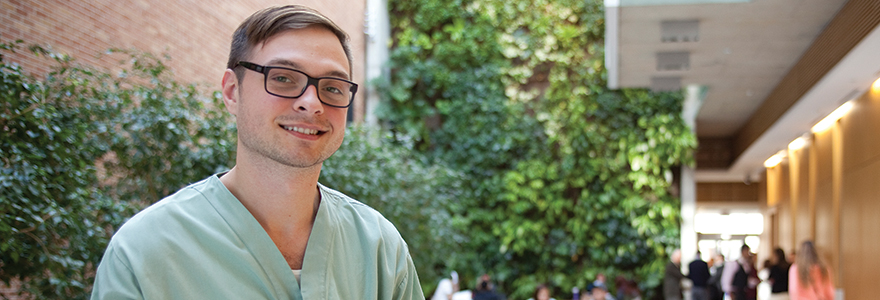IPE Observerships

Objective:
To explore interprofessional health education career opportunities in the community during the Academic Year.
*IPE Observership placements starting prior to September 28 2018 or registered after June 7 2019 will not be approved. For information about summer opportunities please see MED5010: Non-credit Pre-clerkship Summer Electives (NPSE).Observerships are voluntary clinical opportunities which students may pursue outside all scheduled learning during Year 1 and 2.
- Curriculum will always take priority.
- In order to participate in the Observership Program, students must maintain a grade level above 65% and may not have unapproved absences from mandatory sessions on their student record.
- Absence from *any* official curriculum-based learning (including lectures, small groups, labs, large group discussions, etc.) to attend an observership is not approved under any circumstances.
- If a student misses a scheduled learning session to attend an Observership, permission to participate in future Observerships may be revoked at the discretion of the Associate Dean, Undergraduate Medical Education.
- Students may participate in an observership outside of all academic engagements during the academic year, based on capacity and availability of preceptors. At no time will an approved absence be given to facilitate an observership.
- The UME Office does not guarantee that observerships will be arranged or that any number of observerships can be obtained by every student.
What is Interprofessional Education (IPE)?
Interprofessional education is defined as health care professionals learning with and from each other in order to gain the knowledge, skills, and values required to work collaboratively to provide patient-centered care.1
Why is IPE important?
- Improves patient outcomes and enhances the standard of patient-centered care
- Equips students with the requisite competencies for interprofessional collaborative practice
- Fosters development of mutual understanding, and respect for, the contributions of other healthcare professionals
What stands to be gained from IPE observerships?
An IPE observership entails a student observing a healthcare professional in his/her regular practice for a length of time mutually agreed upon in advance. Participating professionals may be eligible for teaching hours.
IPE helps students develop the following collaborative competencies:
- Role clarification - Understanding one’s own role and those of other professions
- Interprofessional (IP) communication - Communicate with patients, families and other health professionals in a manner that supports a team approach to patient management
- Team functioning - Apply principles of team dynamics to effectively and efficiently deliver patient-centered care
- Collaborative leadership - Apply leadership principles that support a collaborative practice model of shared decision-making and individual accountability
- IP conflict resolution - Address conflict in a constructive manner to support and maintain IP collaborative practice
- Ethics - Work with other professionals to maintain a climate of shared values
Responsibilities of the health professional
- Supervise students in all regard to all patient interactions
- Ensure student and patient safety
- Assume legal responsibility for student conduct
- Approved Year 1 and 2 students are covered under Western University’s general and professional liability insurance
- Provide teaching where possible about your practice
Please review the Statement on Observerships.
1Canadian Interprofessional Health Collaborative, 2007









